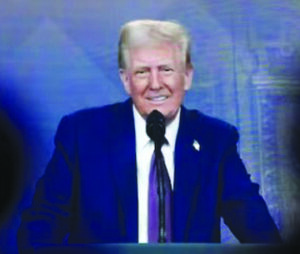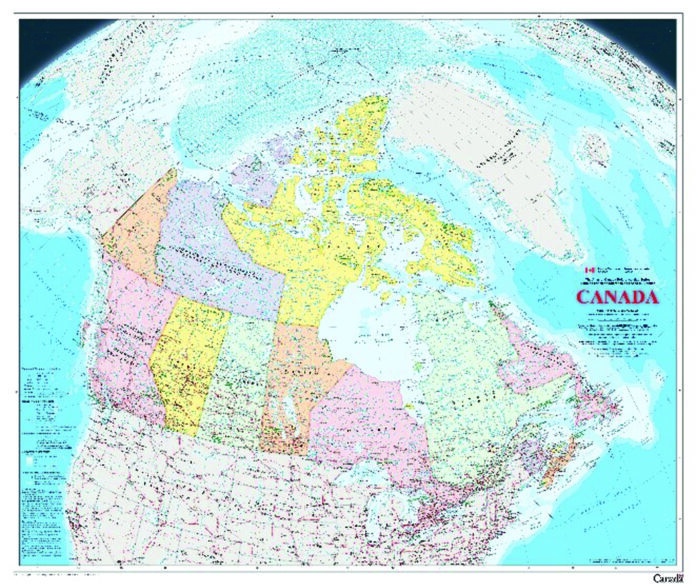Burnaby, BC, 05 February 2025 – In a recent comment that rattled “my” geopolitical sensibilities, U.S. President Donald Trump mused about Canada’s potential entry into the United States as the “51st state.” While the thought might appeal to some with visions of expanding the American dream across the northern border, Canada’s status as a sovereign nation-state stands firm—supported by a long history of political theory, historical evolution, and national identity that renders such a union unlikely, if not impossible.
Understanding the Elements of an Independent State
The concept of statehood is shaped by several core elements that define its sovereignty and autonomy. Political thinkers such as Max Weber, Jean Bodin, and Thomas Hobbes have contributed significantly to understanding what constitutes an independent state. Weber’s work, for example, emphasizes the state’s monopoly on the legitimate use of force and the importance of maintaining order within its borders (Weber, 2019). Similarly, Bodin’s notion of sovereignty, as described in his Six Books of the Commonwealth, insists that sovereignty is indivisible, permanent, and absolute within the state’s territory (Bodin, 2017). These thinkers highlight that an independent state must have recognized sovereignty over its territory, a governing body that exercises authority, and the capacity to engage in international relations. Alongside these elements, an independent state must possess a permanent population, a stable economy and internal governance, and the ability to make decisions free from external interference.
These principles are foundational for a state like Canada, which is recognized internationally for its sovereignty. Sovereignty allows Canada to control its territory and governance, giving it the right to determine its internal and external affairs. The prospect of Canada merging with another sovereign state, such as the United States, would undermine this principle of sovereignty. Such a move would require a dramatic shift in governance and the erosion of cultural identity, legal frameworks, and the balance of power within North America. The discussion of Canada’s sovereignty and the impossibility of a merger with the U.S. is rooted in these theoretical and practical barriers, from sovereignty to preserving national identity, economic control, and legal autonomy.
The Concept of Sovereignty: A Key Barrier
One of the central tenets of an independent nation-state is sovereignty—the supreme authority within a defined territory. As Jean Bodin, the French political theorist, argued in his 16th-century work Six Books of the Commonwealth, sovereignty is indivisible, permanent, and absolute within a state’s borders (Bodin, 2017). Canada, recognized internationally as a sovereign state, exercises complete control over its territory, population, and government. The suggestion that it might merge with another sovereign state, such as the U.S., directly undermines this foundational principle. Any attempt to dissolve Canada’s sovereignty would not only require a fundamental shift in the relationship between these two nations, but it could also lead to loss of control over key policy areas, potential erosion of cultural identity, and a shift in the balance of power within the North American continent, something that would face immense constitutional, political, and legal challenges.
Thinkers like Thomas Hobbes and John Locke further expanded upon this notion of sovereignty, emphasizing the importance of a government that reflects the will of the people (Hobbes, 2019; Locke, 2016). For Canada, a democracy where the consent of the governed plays a key role, the idea of giving up national sovereignty to become a state in another republic would conflict with its constitutional frameworks and the will of its citizens.
National Identity: Culture and Pride
The concept of national identity is another key element that prevents the merging of Canada and the U.S. as equal political entities. Theorist Ernest Gellner suggested in Nations and Nationalism that the very existence of a nation-state is inseparable from the social and cultural transformations that create a unified national identity (Gellner, 2006). For Canadians, this identity is entrenched in a unique history, culture, and values that distinguish them from their southern neighbours. Canada’s distinct national identity is a source of pride and respect, from its bilingual heritage to its healthcare system.

The U.S. and Canada may share a long border, but they have evolved as two separate political and cultural entities, each with distinct paths to sovereignty. The idea of merging these separate identities into a singular political entity disregards the importance of cultural autonomy, which thinkers like Antonio Gramsci highlighted in his work on hegemony, where the ruling class maintains control through force and cultural leadership (Gramsci, 2011). For Canadians, merging into the U.S. would feel less like a strategic partnership and more like the erasure of an honoured identity.
The Role of Government and Law: A Legal Maze
Canada’s government is structured according to its own Constitution, outlining the roles and responsibilities of various levels of government. This contrasts sharply with the federal system of the U.S., which has its own unique Constitution and legal framework. Max Weber’s analysis of the state’s monopoly on legitimate violence accentuates the significance of these legal frameworks (Weber, 2019). The Canadian government exercises its authority within its borders through its legal system and judicial institutions. To transform Canada into a state under the U.S. would require monumental legal reforms and challenge the existing legal system that Canadian principles of justice, human rights, and governance have long defined.
Further complicating matters is Canada’s membership in international organizations like the United Nations. As a sovereign entity, Canada is active in global diplomacy, trade agreements, and international law. To give up this recognition and political autonomy would have severe ramifications for Canada’s ability to participate in these organizations, not to mention the complexities of renegotiating its treaties and agreements under a new national arrangement.
Historical Context: A Union That Never Was
Canada and the U.S. have taken divergent paths since the British Empire granted Canada independence in 1867. While both nations have prospered as independent entities, merging has been proposed—but rejected. The idea of Canadian annexation was openly debated in the 19th century, but the idea fell apart due to differences in governance, religion, and political structure. Canada’s decision to remain independent rather than unite with the U.S. reflected its desire to chart its own path. This decision continues to shape its present and future.
The Economic and Practical Impossibilities
While Canada and the U.S. share a significant trade relationship, Canada’s distinct economic policies and social welfare system—especially its universal healthcare system—would face drastic changes during a political merger. Aligning Canada’s economic and social policies with the U.S. would create enormous economic and social friction. For instance, Canada’s universal healthcare system, a source of national pride and a key component of its social identity, would likely be replaced by a more market-driven system. Similarly, Canada’s economic control, including its ability to regulate taxation, trade, and social programs, is vital to its sovereignty (Bodin, 2017). Any political and economic union would force Canada to cede much of this control, undermining its ability to manage resources, taxation, and public services.
Sovereignty and National Identity Prevail
To sum up, the suggestion that Canada could become the 51st state of the U.S. is a non-starter on multiple fronts. From the theoretical underpinnings of sovereignty to the complexities of national identity, governance, and economic policy, Canada’s status as a sovereign nation-state remains inviolate. It is not merely a matter of political will but of legal, cultural, and social structures that make such a merger impossible. As long as Canada remains proud of its distinct identity and commitment to self-governance, joining the U.S. will remain firmly in political fantasy. This notion can be confidently dismissed.
Sovereignty is not merely a legal or political abstraction; it is essential to the state’s identity and autonomy. Merging would mean confronting profound issues of legal, cultural, and political independence that go beyond the scope of traditional diplomatic negotiations.
References
- Bodin, J. (2017). Six books of the Commonwealth (M. J. Tooley, Trans.). Harvard University Press. (Original work published 1576)
- Gellner, E. (2006). Nations and nationalism. Cornell University Press.
- Gramsci, A. (2011). Prison notebooks (Q. Hoare & G. N. Smith, Trans.). Columbia University Press. (Original work published 1971)
- Hobbes, T. (2019). Leviathan (R. Tuck, Ed.). Cambridge University Press. (Original work published 1651)
- Locke, J. (2016). Two treatises of government (P. Laslett, Ed.). Cambridge University Press. (Original work published 1689)
- Weber, M. (2019). Economy and society (G. Roth & C. Wittich, Eds.). University of California Press. (Original work published 1922).
- Natural Resources Canada. (2014). Atlas of Canada: Wall maps. Government of Canada. https://natural-resources.canada.ca/maps-tools-and-publications/maps/atlas-canada/wall-maps/26109
- Panetta, A. (2025, January 24). Trump for first time talks to international venue about making Canada a state. CBC. https://www.cbc.ca/news/world/trump-davos-canada-1.7440118.
By Bea Balisi-Bevilacqua
MBB



